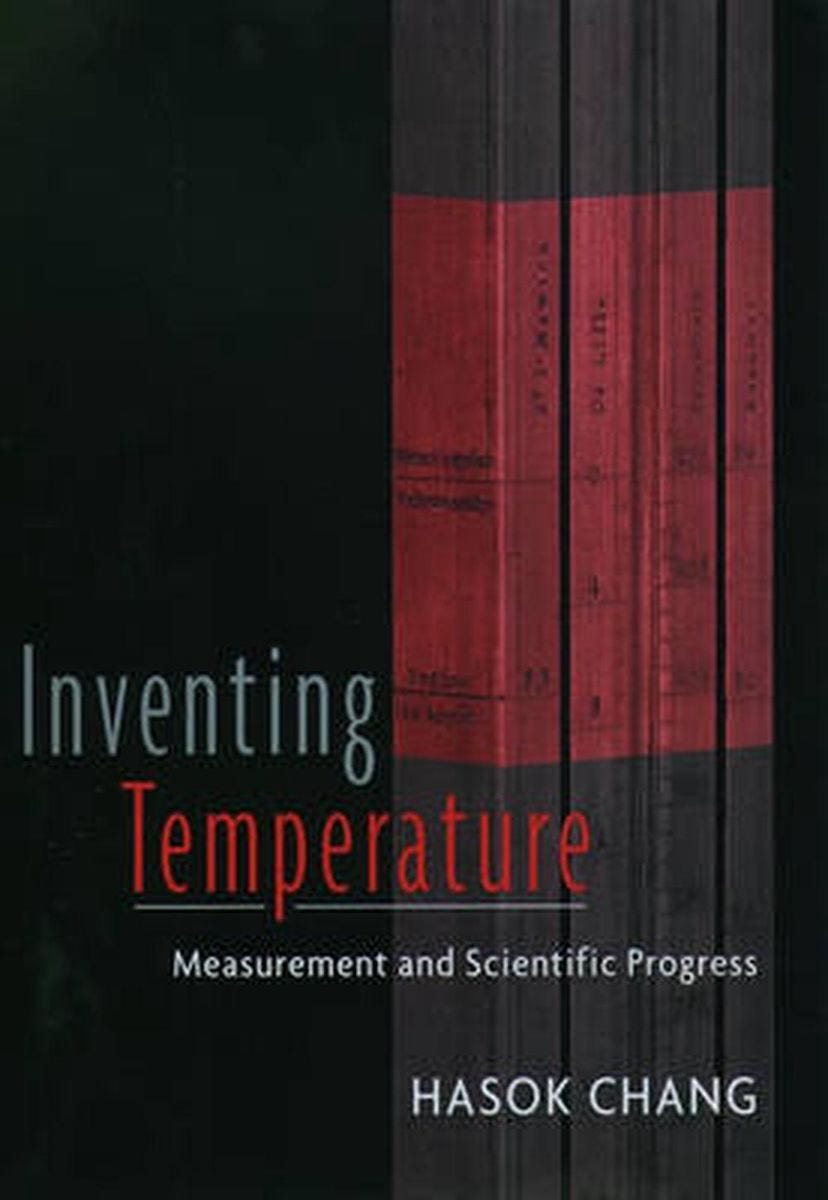Personal Science Week - 13 Oct 2022
Complementary Science, Conquer Aging or Die Trying, and more
This is a brief summary of ideas, published each Thursday, for anyone interested in science for personal reasons (to help yourself) rather than professional ones (as a job). We call it Personal Science and we emphasize first-hand thinking, following the motto of the Royal Society, founded in 1660: Nullius in verba — “take nobody’s word for it”.
Complementary Science
Thermometers have been around for a long time – Galileo had one in 1600. So how come even a genius like Isaac Newton didn’t know that water has a constant boiling temperature (he thought it had a range of values). Even the idea that water boils at a specific temperature is easily disproved by simply watching a tea pot: clear bubbles form well under 100ºC, making it hard to describe exactly when the “boiling” begins. And unless you’re specifically thinking that altitude might make a difference, somebody in a mountain town can prove you wrong about any claim you make at sea level.
Science is full of facts like this that today we take for granted. The earth revolves elliptically around the sun; matter is made of atoms, which in turn are made of impossibly small particles; all living things derive from DNA. You can go pretty far in our education system – to PhD and beyond – without learning how or why these facts are so embedded in our world.
Historians of science love to look back on how various insights were achieved, and philosophers of science try to speculate on the processes that make discoveries possible. University of Cambridge Professor Hasok Chang does a little of both, in what he calls “HPS”. You need both, he says, to practice “complementary science”, a new discipline he proposes as a way to fill in the cracks of important and useful knowledge that is too often left behind.
We need specialists, people who dig deeply into a particular field and who necessarily require years of training. Specialists must focus; prioritization means they must reject alternative investigations based on group consensus. Of course this may mean missed opportunities, and even incorrect conclusions, but that’s just the nature of any concentrated endeavor.
“Complementary science” is a look at a subject with a broader purpose in mind. Why and how did specialists emerge to pursue this particular direction and not another? Were other, promising routes abandoned prematurely? It requires an interest in both history as well as philosophy, reflecting on questions that specialists lack the luxury to pursue.
For an introduction to Chang’s ideas, I recommend a 30-minute YouTube: The Challenge of Everyday Science. He uses the example of batteries, critical to the development of circuits, which became the foundation of modern fundamental theories about electricity (e.g. Ohm’s Law). But in what he calls the “tragedy of everyday science”:
cutting edge science is not necessarily the best for all purposes
the standard explanation we give today for how batteries work is not relevant to how actual and practical batteries work. Instead, chemistry students learn about an obsolete 19th Century “Danielli” cell technology because the chemistry behind modern batteries is too complicated to explain except to specialists.
Highly recommended. You’ll want to follow that lecture with one of Chang’s books, such as Inventing Temperature: Measurement and Scientific Progress or Is Water H2O?: Evidence, Realism and Pluralism
Conquer Aging or Die Trying
Speaking of YouTube, I can recommend Dr. Mike Lustgarten’s channel, where he regularly posts detailed, easy-to-understand walkthroughs for how he uses the principles of Personal Science to maximize his health and conquer aging. After extensively reading the scientific literature on each subject he discusses, he shows step-by-step how he applies the research to his own situation. For example, in a recent 15-minute episode on Biohacking the Oral Microbiome, he outlines the ingredients he’s using in his own homemade mouthwash, custom made based on his own microbiome testing.
Lab Test Recommendations
I’ve not personally tried these, but people I trust have suggested several lab diagnostic tests:
True Health Labs offers several tests of neurotransmitters in their $400 HPA Axis with Neurotransmitters test. A similar test from Lab.Me costs $279 but I don’t personally know anybody who’s used it. If you know something, please let me know.
Ulta Lab Tests sells low-priced blood tests you can take at any of thousands of Quest Diagnostics Labs around the country. Their baseline biomarkers test includes a full lipid and metabolic panel, plus other important measures like TSH and CBC for about $62. We reviewed other options, including my favorite, in our 2-Jun-2022 newsletter.


Do you know the Galleri blood test for cancers? Google offers it to all employees over 50.